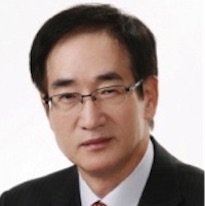GS6 Speakers
Chair of Committee of Engineering Education Innovations, Seoul National University, Korea.
Review of Korean Government policies for promoting gender diversity in science and technology society (download presentation here ![]() )
)
Plenary Panel 3: Developing Policies & Partnerships to Improve Gender Diversity in STEMM
Prof Joon Sik Lee is a professor of the School of Mechanical & Aerospace Engineering, Seoul National University (SNU), Korea. He received his BS and MS degrees from Seoul National University, and PhD degree from University of California, Berkeley. His research interests are in the modelling and measurements of thermal transport at micro/nanoscales. His previous appointments at Seoul National University include Executive Vice President, Dean of Research Affairs, Director of Institute of Advance Machinery and Design, Director of Micro Thermal System Research Center, and Director of SNU Technology Incubation Network. He is also recognized in international academic societies as Vice President of the Pacific Center for Thermal-Fluids Engineering, Member of the International Center for Heat & Mass Transfer, Delegate of the Assembly for International Heat Transfer Conferences, and Editor or Associate Editor of international journals such as Nanoscale and Microscale Themophysical Engineering, Experimental Heat Transfer, International Journal of Transport Phenomena, ASME Journal of Heat Transfer, Computational Thermal Sciences, and International Journal of Air-Conditioning and Refrigeration.
Aside from his academic activities, his career extends to Korean government research planning and budget allocation. He has served as a member of the Steering Committee, Chairman of the Committee on Big Science & Technologies, and Chairman of the Green Technology Committee of the National Science and Technology Council of Korea, and he is currently a member of Presidential Advisory Council on Science and Technology.
Summary of Talk for Gender Summit 6 Asia-Pacific:
Women’s role in science and engineering is becoming crucial in Korea because of a low birth rate, the move towards an aging society, and emergence of sensibility technology. However, “woman power” has not been practically utilized due to barriers such as a low employment rate and discontinuation of women’s career development. Despite the Korean Government’s progressive efforts for the quantitative extension of the female talent pool and improvement of women’s employment rate, sustainable policies should be mapped out in order to attract talented women, enhance their capabilities, create new jobs and positions and secure gender diversity.
This presentation will introduce for discussion action plans proposed by the Korean Government in order to secure gender diversity in science and technology. Major action items are: 1) encouraging talented women by presenting them with vision and career paths in science and technology fields, and promoting their participation in R&D and business; 2) enhancing female scientists and engineers’ capabilities by raising their participation in R&D, and reinforcing their global networks; 3) expanding high quality jobs by continuously creating woman-friendly employment, and promoting start-up businesses; 4) converging life-friendly employment by supporting women’s easy return to work after career breaks and fostering cultural change for reconciling work and home life; and 5) driving gender diversity by fostering female leaders in science and technology society.

